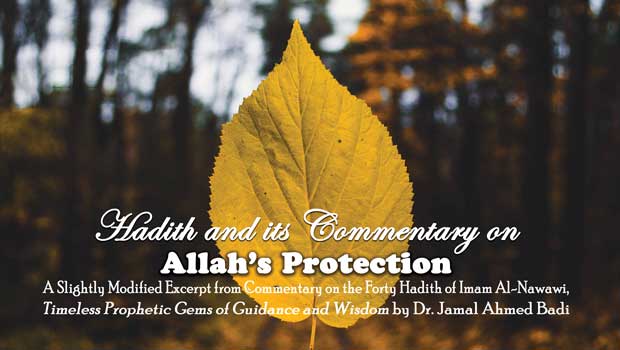For each of us, our time in this world is limited. Knowing this, we must ask ourselves – how do we use our time effectively if we hope to make a meaningful impact?
In one way, Allah (SWT) has answered this question with His command to prostrate ourselves in prayer and to give of ourselves and our wealth in charity. He (SWT) said: “And establish prayer and give zakat, and whatever good you put forward for yourselves – you will find it with Allah. Indeed, Allah of what you do, is seeing.” (Quran 2:110)
However, many ignore this directive, only to regret it when confronted by the Angel of Death. Of this instance, Allah (SWT) said, “(They persist in their evil) until when death comes to one of them, he says: ‘My Lord! Send me back (to life one more time) so that I may do the good things I have neglected.’ Never! It is simply a word that he speaks and (will never be allowed to go back), and behind them (the disbelievers) is a barrier until the day when they will be resurrected.” (Quran 23:99-100)
How can we work toward making a positive legacy?
We all hope to impart a positive and impactful legacy when we die. So, what can we do now to keep focused on what we leave behind?
- Clarify our purpose. We must reflect deeply on what matters most, specifically our beliefs, passions, values, and strengths. We also cannot rely on being born in a Muslim home and assume our priorities are intact. Instead, we must pay close heed to what Allah (SWT) said about our purpose. He (SWT) said, “I have not created the jinn and the humans except that they should worship Me (alone).” (Quran 51:56). With this clear explanation of our creation, we understand that worshipping Allah (SWT) is our overarching goal in life and should let this guide our actions and decisions. If we do, we will regularly assess and refine our life’s direction to ensure it aligns with genuinely held values, specifically worshipping Allah (SWT).
But what does it look like if we eschew Allah’s (SWT) purpose for our existence? We risk drifting aimlessly, void of clear goals or direction. We also may find ourself spending valuable time on activities that don’t align with what we’ve been created for – worshipping Allah (SWT). What an emptiness of soul that would create! This purposeless wandering also may lead us to procrastinate endlessly, pushing us farther and farther away from the true meaning of life.
Also beware of distractions, including excessive screen time, scrolling social media for hours each day or binge-watching television programs late into the night. Though these activities might bring fleeting moments of pleasure, they offer little long-term value. Let’s be honest about these vices and make every effort to break ourselves of bad habits and instead use that time to focus on Islamic study, worship, and performing good deeds or acts of charity. - Be focused and consistent with our actions. This applies to all aspects of life, especially worship. Doing so helps us prioritize, allowing us to concentrate on activities with the greatest spiritual impact, specifically our long-term aspirations and lifelong goals. By prioritizing commitments and paying attention to core aspects of life, we ensure our energy is directed to pleasing Allah (SWT).
Goal prioritization also aids in minimizing distractions that derail us and helps us stay consistent and disciplined when we feel motivation waning. Remember, small yet intentional steps compound into significant outcomes over time. Our beloved Prophet Muhammad (peace be upon him), in a hadith narrated by Aisha (may Allah be pleased with her), said, “The Messenger of Allah (peace be upon him) was asked about the act most pleasing to Allah. He replied: ‘That which is done continuously, even if it is small.’”
Cementing our legacy
When working to build a positive legacy, we must nurture our relationships with proper investment and care for others’ well-being. To do this, consider sharing knowledge, skills, and resources to uplift one another and to create a ripple effect of beneficial changes. We should also embrace gratitude and humility with the understanding that making our mark isn’t just about success, but also about significance, as our impact often lives on through those whose lives we touch. As Imam Ash-Shafe’ee – a scholar, jurist, and one of the four great Sunni imams – said, “Some people have died, yet their virtues live on, while others are alive, but among people, they are as good as dead.”
Also, remember positive action begets positive actions. So, let us seek out opportunities to make a difference in our communities such as feeding the poor, youth counseling, working with the homeless or with battered women, or contributing to organizations working to prevent child abuse or for social justice.
When we’re lacking motivation, we should reflect on the story of people who came to Muhammad (peace be upon him) in need. Jarir bin Abdullah, a companion of the Prophet (peace be upon him), reported desert Arabs clad in woolen clothes came to Allah’s messenger (peace be upon him), who saw they were in need. Muhammad (peace be upon him) then exhorted people to give charity, but they showed some reluctance until (signs) of anger could be seen on his face. Then someone from the Ansar came offering silver. Then came another person and then other people followed them in succession until signs of happiness could be seen on his (sacred) face.
Thereupon Allah’s messenger (peace be upon him) said, “He who introduced some good practice in Islam which was followed after him (by people) he would be assured of reward like one who followed it, without their rewards being diminished in any respect. And he who introduced some evil practice in Islam which had been followed subsequently (by others), he would be required to bear the burden like that of one who followed this (evil practice) without theirs being diminished in any respect.” (Muslim)
Conversely, when we don’t strive for an honorable legacy, we risk dwelling on negativity. This could be holding grudges, harboring regrets, or engaging in excessive worrying about things beyond our control, draining our energy and focus. We may even engage in self-doubt or negative self-talk. This attitude stifles potential and discourages progress. When we resist change or growth out of fear and/or complacency, we oftentimes find ourselves stuck in unproductive cycles, leading to constant stress and, essentially, training ourselves to live in that problematic state. If that happens, many of us would struggle to break free of the stress that plagues us, even during times of success.
Slaves of Allah (SWT)! Remember that Islam guides us to a life of peace, goodness, and success. For a model, look to Muhammad’s (peace be upon him) companions, who recited Surat al Asr when parting. In this passage, Allah (SWT) said, “By time, indeed, mankind is in loss, except for those who have believed and done righteous deeds and advised each other to truth and advised each other to patience. (Quran 103:1-3)




